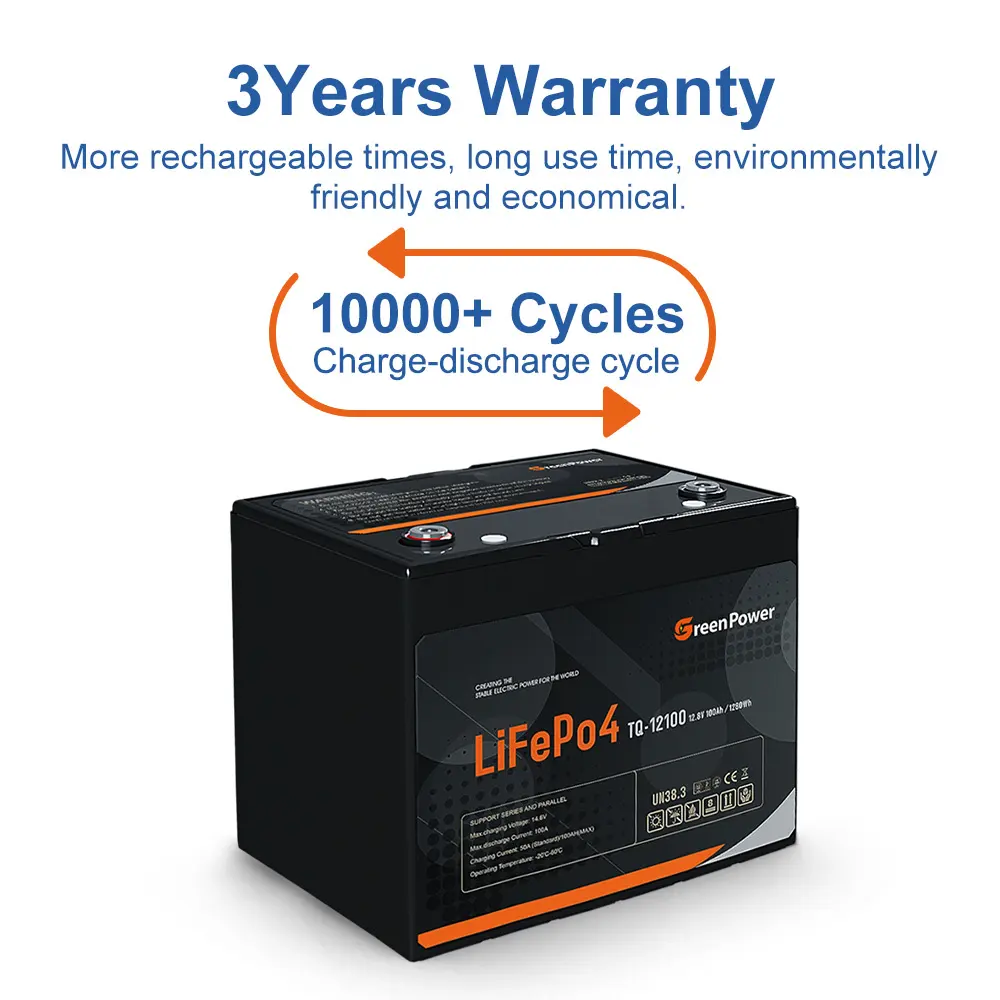Core Reliability of Lead Acid Batteries Explained
Robust Electrochemical Design Principles
Lead acid batteries are pretty impressive when it comes to electrochemical engineering. Inside them we find lead dioxide mixed with sponge lead, and this combination actually creates a stable chemical reaction while allowing the battery to work well across different situations. The way these materials fit together makes lead acid batteries efficient enough to be widely used in lots of places including cars and solar power systems. What really stands out about these batteries though is how they keep putting out steady voltage even as they lose charge over time. That's why so many applications need them for reliable power supply. Despite all sorts of tough operating conditions, lead acid batteries continue performing without much trouble, which explains why so many businesses still rely on them despite newer alternatives coming onto the market.
Proven Durability in Demanding Conditions
Lead acid batteries stand out when it comes to lasting power, especially when things get tough. These batteries have a solid build that handles rough treatment pretty well, surviving both intense shaking and temperature extremes without much trouble. That's why they work so great in situations that need dependable power sources, think about backup systems for data centers or those emergency lights during blackouts. Industry research shows something interesting too these old faithfuls still hold onto around 80% of what they were rated for even when pushed hard against harsh conditions, which means they keep going strong where many alternatives would give up. We've seen this play out in real world scenarios across various industries for decades now. When reliability matters most, lead acid batteries just keep on ticking along, showing off their ability to handle whatever gets thrown at them. And honestly? This track record speaks volumes about how built to last these batteries really are.
Comparing Lithium-Ion vs Lead Acid Reliability
Thermal Stability and Safety Profiles
When it comes to heat resistance, lead acid batteries really shine compared to lithium-ion alternatives. They just don't catch fire as easily during those dangerous thermal runaways that plague so many lithium packs. Industry reports consistently point to fewer safety problems with lead acid units even when subjected to harsh environmental extremes. Take a look at what happens in real world scenarios too. Automotive mechanics know this well because cars parked under scorching sun or freezing winter nights still start reliably thanks to these batteries. Same goes for boats bobbing around on unpredictable seas where temperature swings can be brutal. Safety remains the top priority in these applications, which explains why mechanics and engineers keep choosing lead acid despite all the buzz about newer battery technologies. Their proven track record in mission critical systems simply can't be ignored.
Deep Discharge Recovery Capabilities
Lead acid batteries have one big plus over lithium-ion versions when it comes to bouncing back after being drained completely without getting permanently damaged. Studies show these old fashioned batteries can handle lots of charging and discharging cycles while still performing pretty consistently, even when they get deeply discharged again and again. That's why they work so well in situations where we need dependable power restoration after heavy use. Think about things like delivery trucks that run all day long or emergency backup systems at hospitals and data centers. These places really depend on having reliable energy when they need it most, which is exactly what lead acid batteries deliver time after time.
Nickel-Based and Flow Battery Vulnerabilities
Cycle Life Degradation Issues
Nickel based and flow batteries face a major problem when it comes to how long they last through charge cycles, especially when subjected to heavy usage conditions. Their lifespan tends to shorten significantly compared to traditional lead acid batteries which many still rely on for backup power needs. According to various industry reports, standard lead acid models typically survive thousands more charge discharge cycles before showing signs of wear out. For facilities needing reliable power storage solutions without constant maintenance headaches, this difference matters a lot. Replacing batteries frequently not only eats into budgets but also creates downtime issues that disrupt operations across different sectors from telecommunications to renewable energy installations.
Temperature Sensitivity Challenges
Nickel based batteries really struggle with temperature changes, something that impacts how well they work and how reliable they are when the weather goes up and down. Lead acid batteries tell a different story though. They tend to perform pretty consistently even when temps swing around quite a bit, so there's no need for all sorts of complicated cooling systems. Studies have shown these old fashioned batteries actually fail less often when exposed to varying temperatures. This makes them much better suited for places like construction sites or remote locations where keeping things at a steady temperature just isn't practical.
Cost vs. Reliability: Lead Acid Battery Value Proposition
Lifecycle Cost Analysis Across Technologies
Looking at the whole life cycle costs helps compare different battery options, and it turns out lead acid batteries actually save money in the long run. Sure, they start off cheaper than many newer tech options right from the get go. But what really matters is what happens after installation. Lead acid packs have built a reputation for lasting longer and working reliably through tough conditions, which means companies end up spending way less over time. Studies show these old fashioned batteries need replacing much less frequently and don't demand constant attention like those fancy lithium ones do. When all the numbers are crunched together, lead acid comes out on top for most business owners who want to cut down on power costs without sacrificing dependable operation day after day.
Reduced Failure Rate Impact on TCO
Lead acid batteries tend to fail very infrequently, which makes a big difference in what companies actually spend over time. Looking at the numbers shows these batteries cut down on equipment downtime and stop operations from getting disrupted so much. Companies that go with lead acid usually save money compared to alternatives where failures happen more often. The connection between how reliable these batteries are and what they cost in the long run matters a lot to business decision makers. When looking for something that keeps working without constant problems, lead acid remains a smart pick for most industrial applications. Their track record of lasting performance helps keep production lines running smoothly day after day, something manufacturers can't afford to compromise on when trying to stay competitive in today's market.

Critical Applications: Where Lead Acid Excels
Automotive Starting Systems Performance
Lead acid batteries are pretty much the norm when it comes to starting cars because they deliver good current and work reliably most of the time. They manage to crank over engines even when weather gets tough, which is why drivers keep coming back to them year after year. Industry stats point to these old standbys powering around 90% of all vehicles on roads today across different makes and models. What keeps them relevant? Simple really – they just work. From basic gas guzzlers right through to newer hybrids with fancy electronics, lead acid continues to do its job without much fuss despite competition from newer battery technologies entering the market.
The growing popularity of cars equipped with features like start stop technology means manufacturers are increasingly turning to reliable lead acid batteries. Car makers across the globe are looking for ways to store energy efficiently while keeping costs down, which fits right into current market demands. These batteries work well in all kinds of conditions and don't break the bank compared to alternatives. That's why they keep showing up in everything from compact city cars to heavy duty trucks. Despite newer technologies entering the scene, lead acid remains a staple component for anyone wanting their vehicle to run smoothly without breaking the budget.
Grid Backup Power Dependability
Lead acid batteries have become pretty essential for grid backup power solutions, keeping things running when the lights go out. We live in a world now where having constant electricity matters a lot for homes and businesses alike. These old fashioned batteries just keep working when needed most. According to several industry studies, they hold up well in emergency situations. Their knack for releasing stored energy without fail makes all the difference for hospitals, data centers, and other places that simply cannot afford downtime. Even though newer technologies exist, many companies still rely on lead acid because they know what to expect from them during those critical moments.
Lead acid batteries have become go-to options for many utility companies and renewable energy setups because they just keep working when needed most. These batteries are built tough enough to take on those moments when demand spikes suddenly, which makes them really good at keeping grids stable and helping solar or wind installations maintain power output during busy times. With global energy needs climbing all the time, lead acid tech stays important in backup power scenarios. They provide that extra layer of security people need whether it's for homes dealing with blackouts or businesses that simply cannot afford downtime. Plus, their long service life means fewer replacements overall, which actually supports sustainable practices despite what some might think about older battery technologies.
FAQ
Q: What makes lead acid batteries reliable?
A: Lead acid batteries are reliable due to their stable electrochemical reactions, robust design, ability to sustain a consistent voltage, and durability under demanding conditions.
Q: How do lead acid batteries perform in high-temperature environments?
A: Lead acid batteries demonstrate excellent thermal stability, maintaining performance and safety even in high-temperature conditions, which makes them preferable for demanding environments.
Q: Are lead acid batteries cost-effective?
A: Yes, lead acid batteries are cost-effective with low initial costs, minimal maintenance, and a reduced failure rate, contributing to a lower total cost of ownership over their lifecycle.
Q: Can lead acid batteries be used for automotive starting systems?
A: Absolutely, lead acid batteries are common in automotive starting systems due to their high current output and reliability in various weather conditions.

